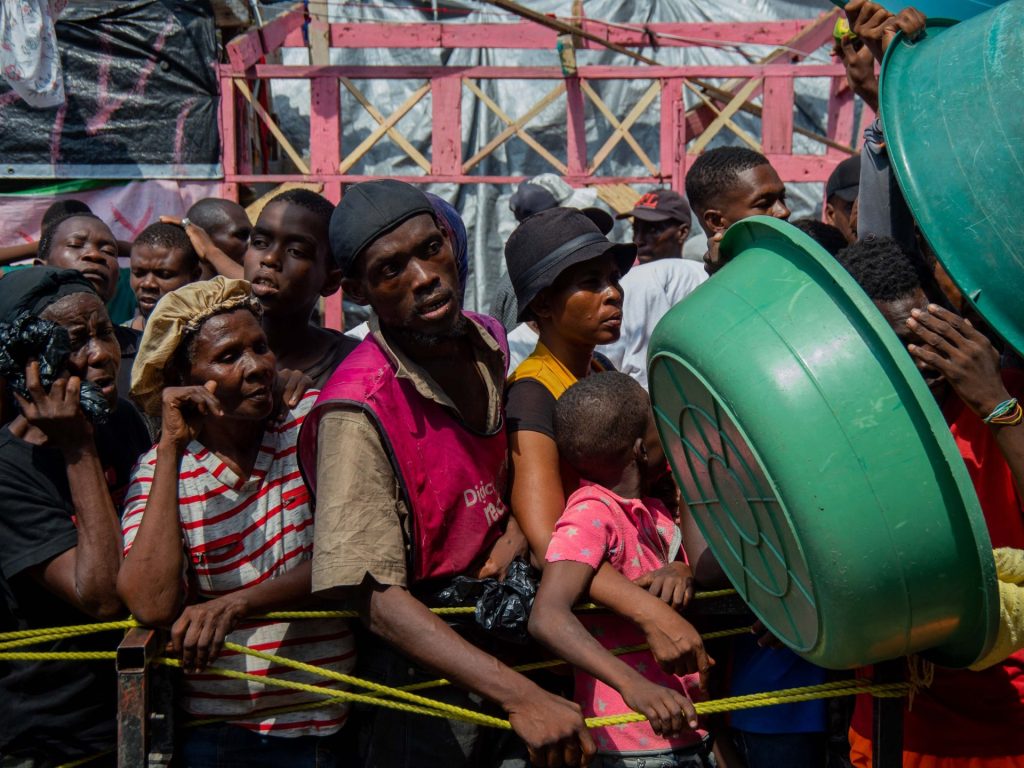The International Organization for Migration (IOM) has reported that over 700,000 people are internally displaced in Haiti, with more than half of them being children. This represents a 22 percent increase from June, with over 110,000 people fleeing their homes in the last seven months due to gang violence, particularly in the Gressier area west of the capital, Port-au-Prince. Haiti has been facing years of unrest and instability, with powerful armed groups vying for control, often with connections to political and business leaders.
The situation worsened significantly at the end of February when gangs carried out attacks on prisons and state institutions in Port-au-Prince. This surge of violence led to the resignation of Prime Minister Ariel Henry, the establishment of a Transitional Presidential Council, and the deployment of a multinational force called the Multinational Security Support Mission. The UN human rights office reported over 3,600 deaths this year in Haiti due to gang violence, and the Integrated Food Security Phase Classification (IPC) stated that almost half of the population is experiencing acute food shortages.
Gregoire Goodstein, the IOM chief in Haiti, called on the international community to provide support for Haiti’s displaced populations and the host communities that have been resilient in the face of challenges. The report revealed that 75 percent of displaced individuals are now sheltering in the country’s provinces, with the Grand Sud region hosting 45 percent of them. The rest are in Port-au-Prince where conditions are described as precarious and unpredictable, with overcrowded sites and limited access to basic services. The IOM noted that 83 percent of displaced people are being hosted by families.
The agency emphasized the importance of continuing efforts to restore stability and security in Haiti, along with providing humanitarian aid to alleviate the immediate suffering of those affected. The UN agency for migration highlighted the urgent need for international support, particularly for vulnerable populations such as children who make up a significant portion of the displaced population. It called for sustained efforts to address the root causes of the violence and instability in Haiti, in addition to providing immediate assistance to those in need.
The situation in Haiti remains critical, with a large number of people displaced by gang violence and living in precarious conditions. The international community has been urged to step up support for those affected, including both the displaced populations and the host communities. Efforts to restore stability and security in the country must be a priority, along with providing humanitarian aid to address the immediate needs of those impacted by the crisis. The ongoing challenges faced by Haiti highlight the need for coordinated international assistance to address the root causes of the violence and instability in the country.
The IOM report serves as a reminder of the urgent need for international support for Haiti’s displaced populations, particularly children who are disproportionately affected by the crisis. With over 700,000 people internally displaced and facing ongoing challenges, it is crucial for the international community to provide assistance to alleviate suffering and help restore stability and security in the country. Efforts to address the root causes of the violence and instability in Haiti are essential to ensure long-term peace and security for the displaced populations and the broader community.















